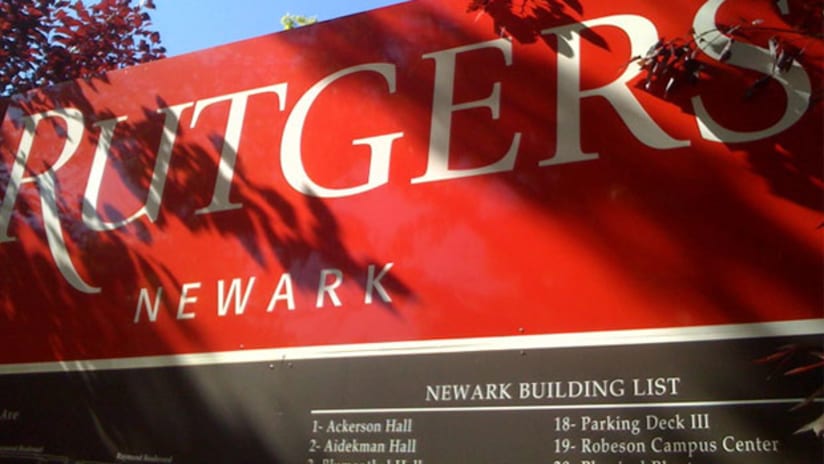NEWARK, N.J. – Rutgers-Newark is a small, public university located in a somewhat-leafy downtown section of New Jersey’s largest city. It is perhaps most notable for being named the most-diverse college in the nation by U.S. News & World Report every year since 1997.
Perhaps because of this cultural diversity there is no better school to host a course entitled History 462: The Global History of Soccer.
With a syllabus that includes lessons entitled "Military Rule and Mothers of The Disappeared: Soccer in Latin America" and "Debating Post-War Identities: National Character Studies,” this course is a dream for the fanatico with an appreciation for the cultural and social impact of the game.
It is also a dream for the course’s instructor, Dr. Thomas McCabe.
“I get to teach the class I was never able to take,” McCabe says.
A summer course that was introduced for 2010, The Global History of Soccer was born out of McCabe’s love of the game and the absence of soccer-related courses in domestic college curriculums.
“It’s always been a passion of mine, soccer and history,” McCabe says. “And until quite recently there has always been a void in courses on soccer at American universities.”
Employing David Goldblatt’s The Ball is Round and Eduardo Galeano’s Soccer in Sun and Shadow as textbooks, the course offers a unique look at race, class, gender, ethnicity and national identity through the lens of soccer.
And it’s been well-received by both faculty and students – some of whom came from other universities to take the class – and McCabe’s peers.
“Most people, when I tell them I’m teaching this class they say, ‘You get paid to teach that?’” McCabe says.
Some might think that a commuter school in downtown Newark is an unlikely destination for a course on the global history of soccer, but with US soccer legends like Tab Ramos, Greg Berhalter, Claudio Reyna, Tony Meola and John Harkes all hailing from the surrounding area, there is perhaps no better place in America.
And with a bevy of soccer-centric social clubs, a variety of ethnic neighborhoods and Red Bull Arena in the vicinity there is a hands-on element that helps to bring the lessons to life.
For McCabe, it’s the one-of-a-kind excursions to these places that make the course special.
“One of my favorite things about teaching this course is getting out of the classroom,” he says. “Going to ethnic social clubs here in Newark and in that setting talking about immigration, the role of sport and how people are become American but still try to hold on to the old ways.”
“Going to the Scots-American Club and discussing religion and the Old Firm and getting to hear someone who grew up in Glasgow address the class on how the religious divide gets played out in Celtic Park or Ibrox or Kearny, N.J. ... It’s a real scratch-and-sniff history that you wouldn’t get sitting in an ordinary class.”










